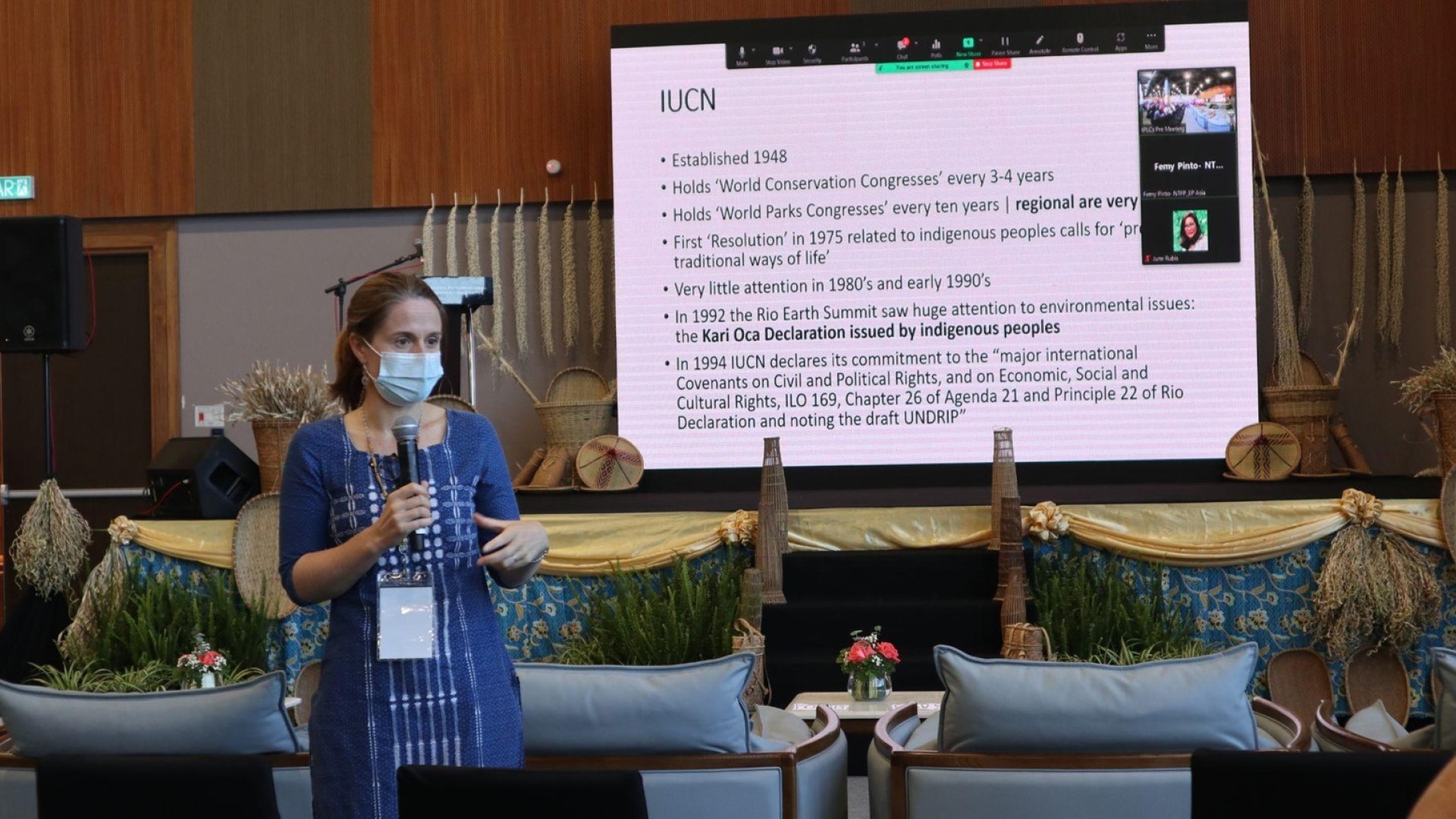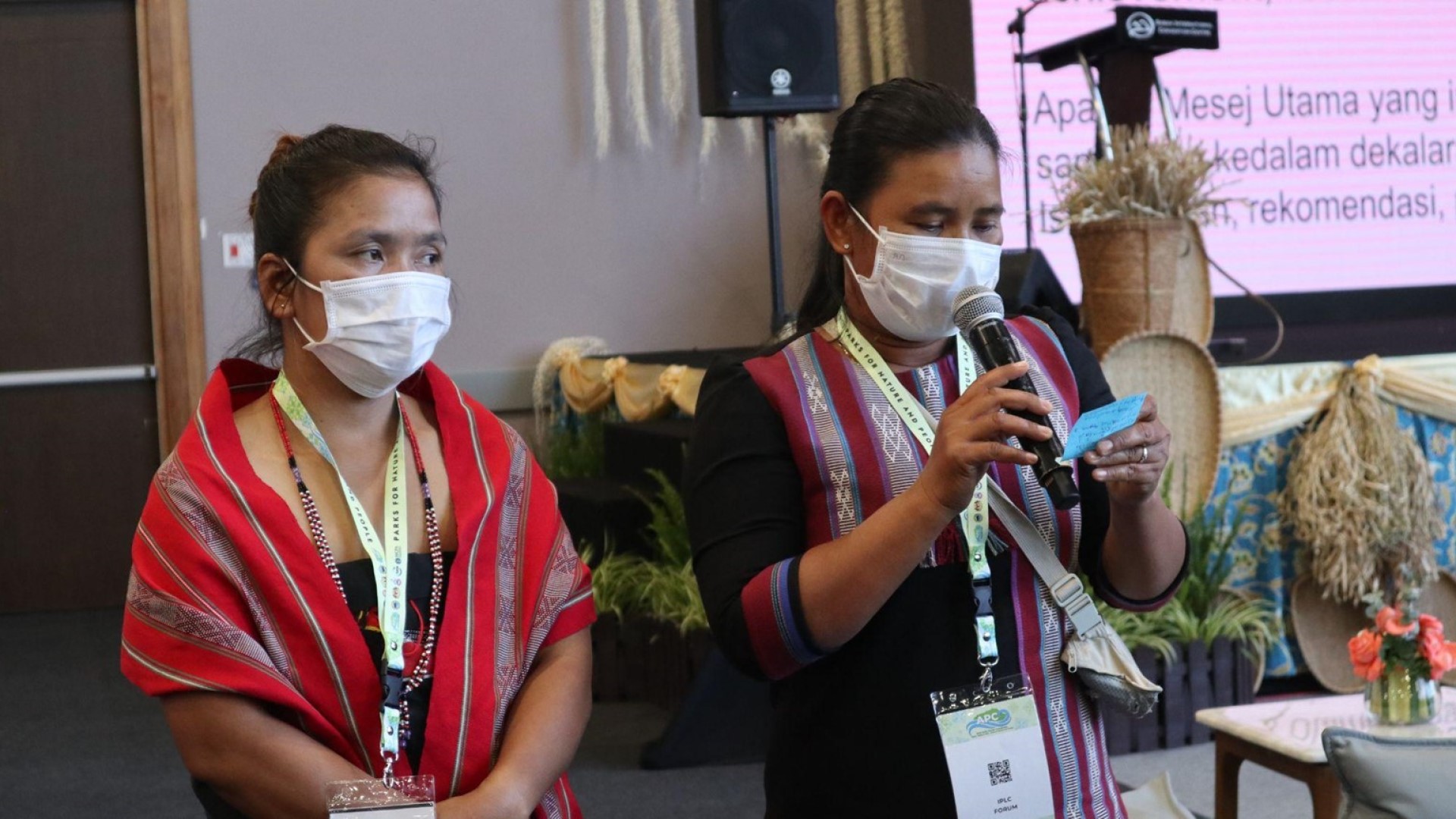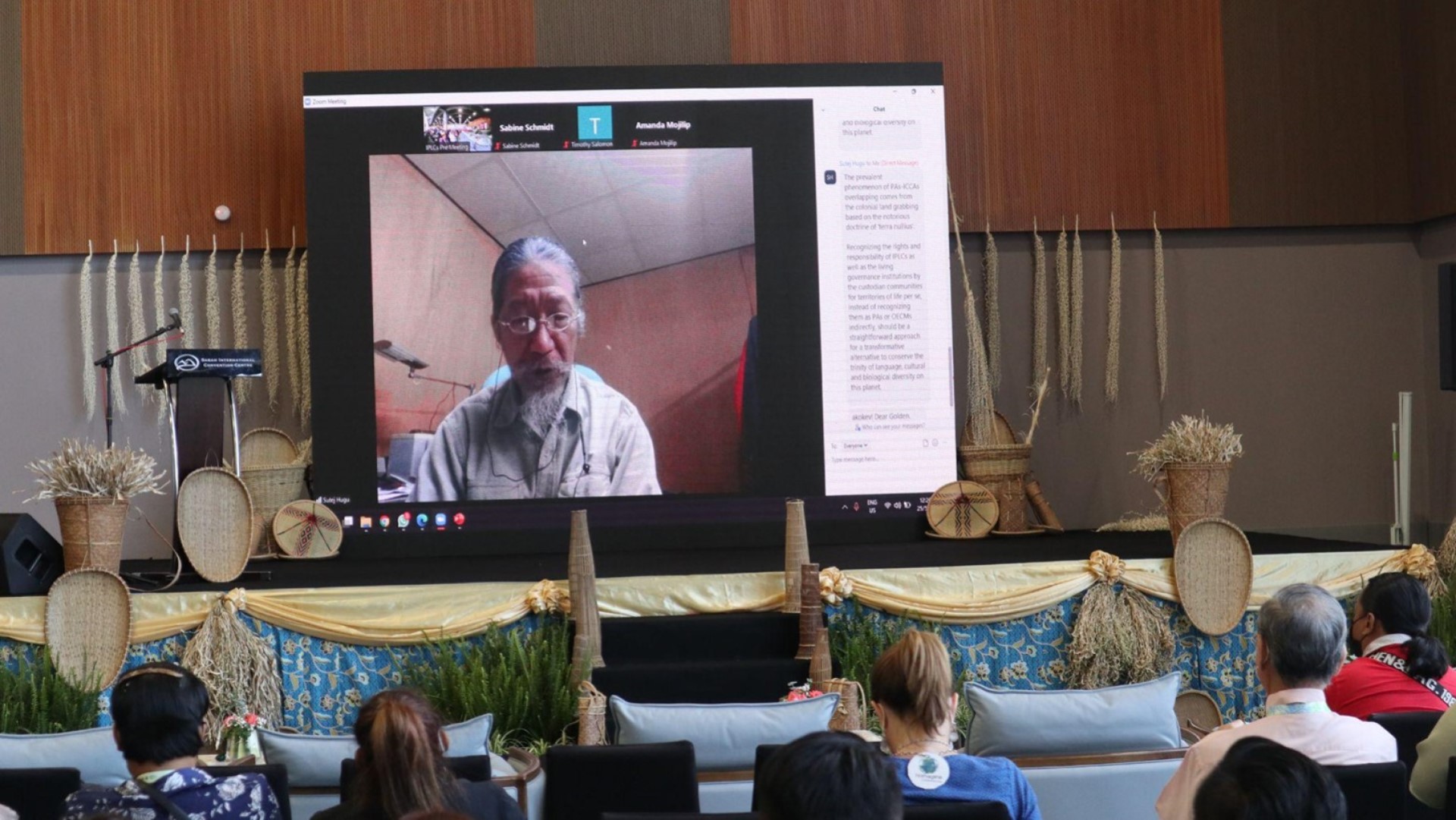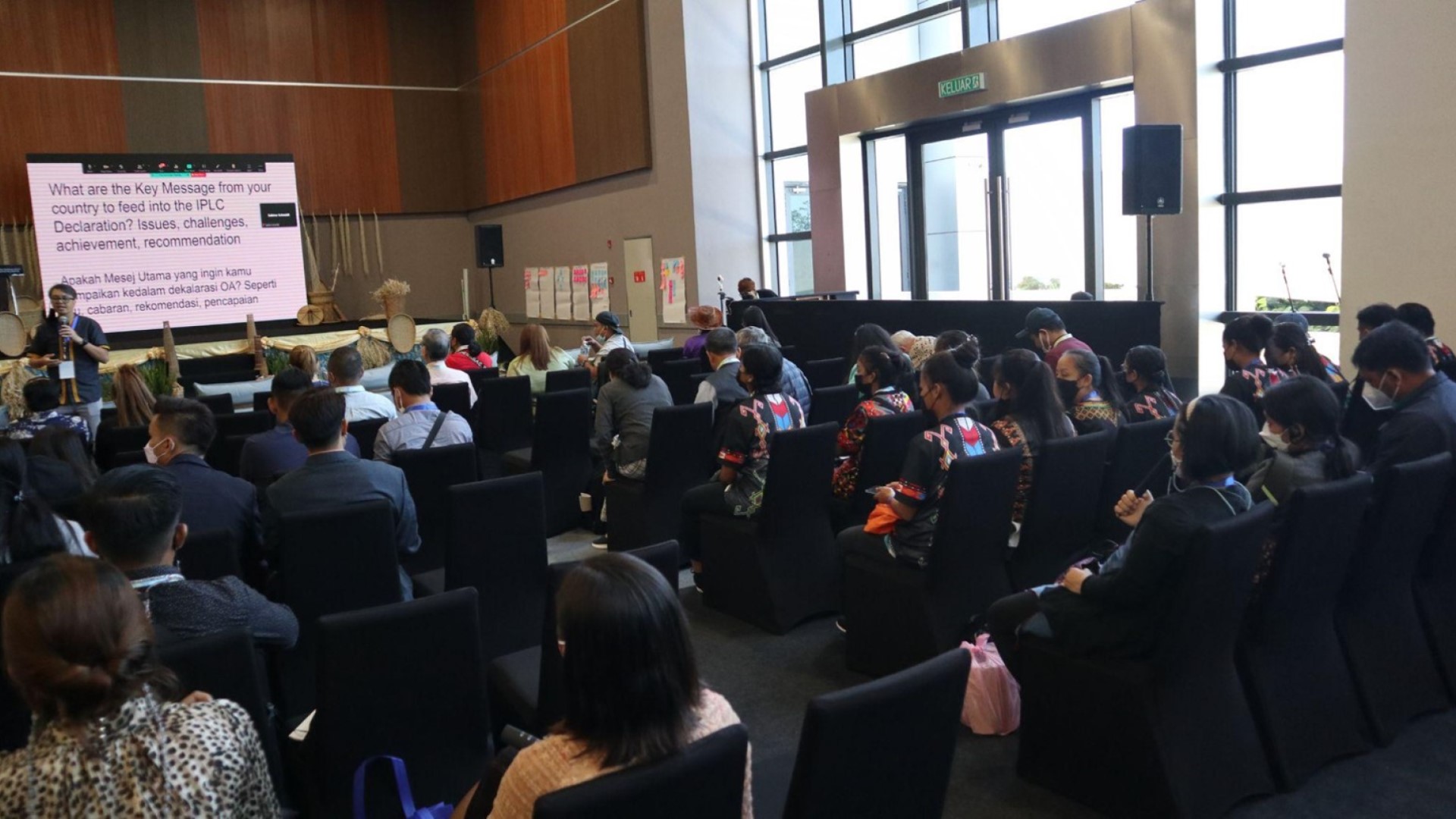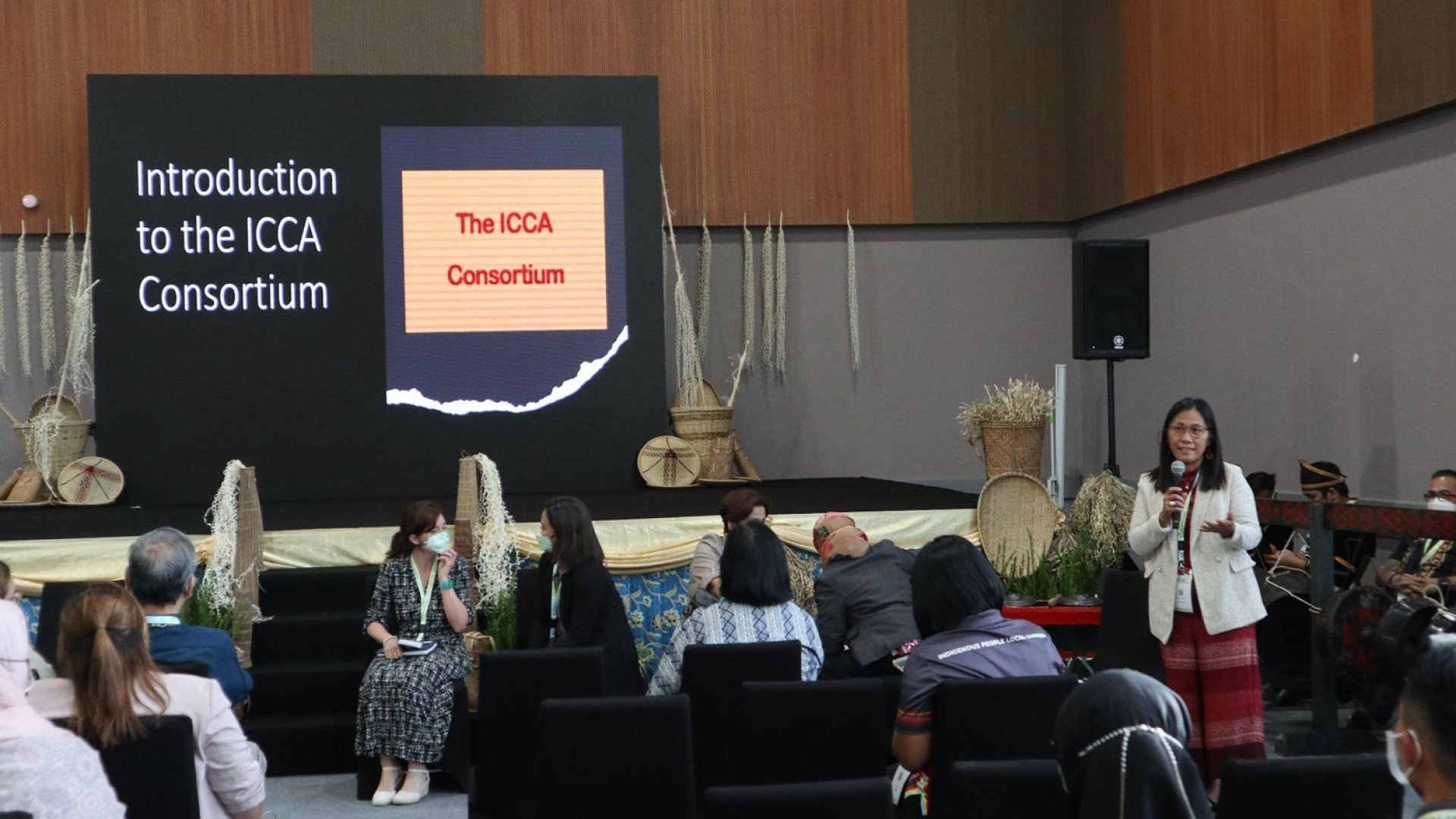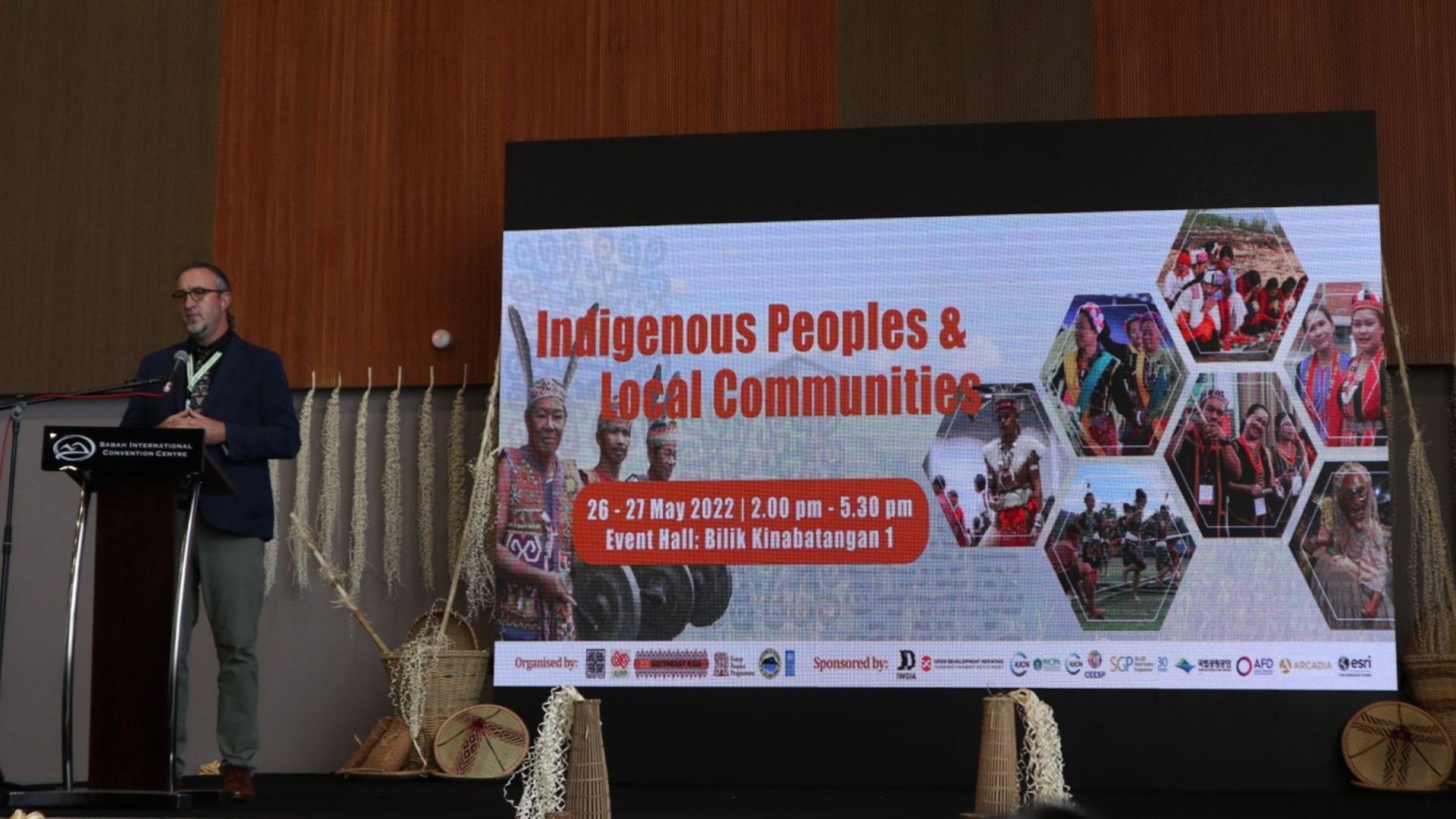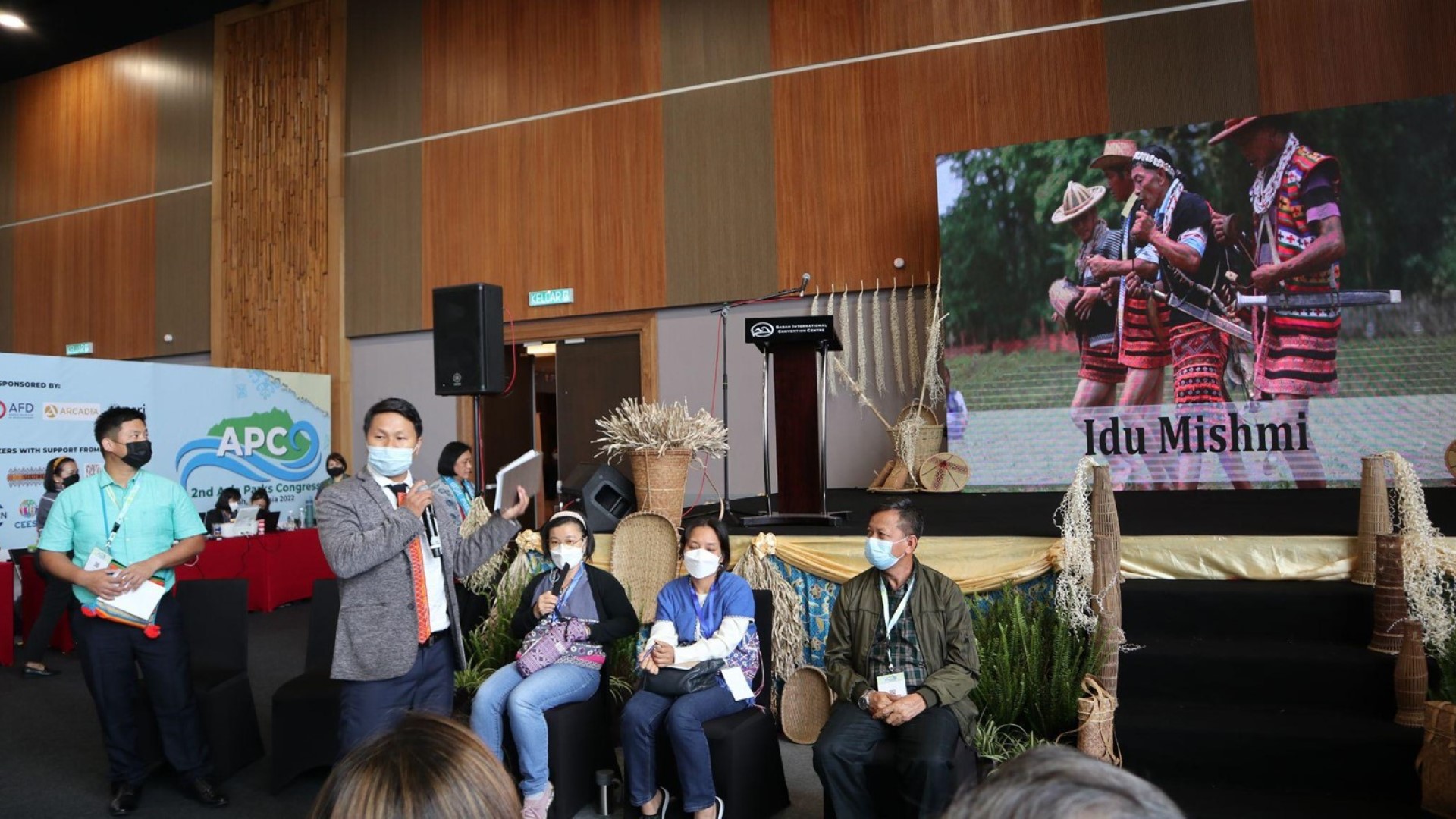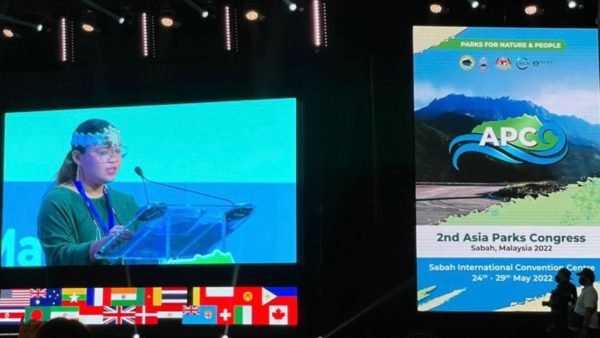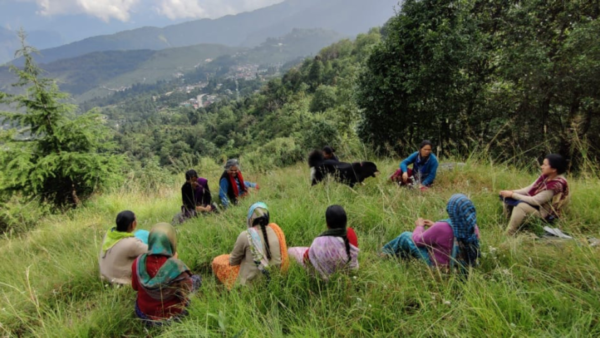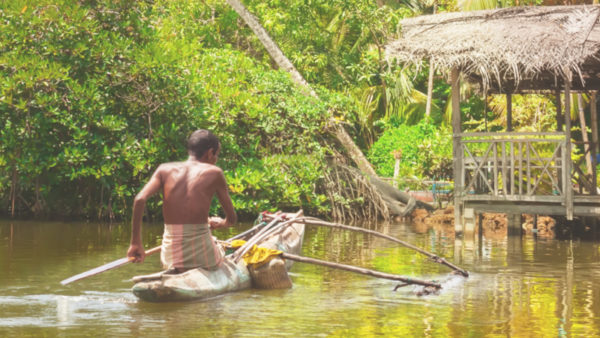Indigenous Peoples and local communities from nine countries in Asia shared their aspirations and recommendations in a preparatory meeting and a forum that led to the launch of the Api-Api Declaration
First published on 09/30/2022
By Gordon John Thomas (PACOS Trust, ICCA Consortium Member) and Amy Maling and Diana San Jose (NTFP-EP, ICCA Consortium Member and host of the Southeast Asia regional coordination team)
The 2nd Asia Parks Congress and the associated meeting and forum of Indigenous Peoples and local communities were held from 24-29 May 2022. A total of 247 Indigenous participants from nine Asian countries participated in these events. The countries include India, Indonesia, Cambodia, Kyrgyzstan, Malaysia, Nepal, the Philippines, Thailand, and Vietnam. A total of forty of these participants are affiliated with and were supported by the ICCA Consortium and/or Member organizations.
Among the participants from or affiliated with the ICCA Consortium membership, 26 attended the meetings in person and 14 virtually. The participants came from the Southeast Asia Regional Council, Members and partners from Central Asia, South Asia, and Southeast Asia, Indigenous partners from India, Nepal, and Malaysia, and eight young Indigenous representatives from the Philippines, Vietnam, Indonesia, and Malaysia.
Pre-meeting
The pre-meeting of Indigenous Peoples and local communities was held from 24-25 May and organized by Asia Indigenous Peoples Pact (AIPP), ICCA Consortium, and Consortium Members PACOS Trust and Forest Peoples Programme.
The objective of this pre-meeting was to ensure that key perspectives and concerns of Indigenous Peoples and local communities were reflected in the formal outcomes of the main congress; to provide an opportunity for networking and mutual learning, and to raise the profile of actions by Indigenous Peoples and local communities in the formal agenda and in the pavilion of the congress. One outcome of the meeting was the formulation of the Api-Api Declaration based on the stories, aspirations, and messages of the delegates during these events.
The Indigenous Peoples’ and Local Communities’ Forum
The main forum of Indigenous Peoples and local communities was held from 26-27 May. It was organized by Sabah Parks and co-hosted by PACOS Trust, AIPP, FPP, World Wide Fund for Nature (WWF), and the ICCA Consortium as a space for Indigenous Peoples and local communities to gather, share, learn, and express solidarity. The event consisted of forums, traditional performances, and exhibitions, and highlighted traditional foods and handicrafts of Malaysia.
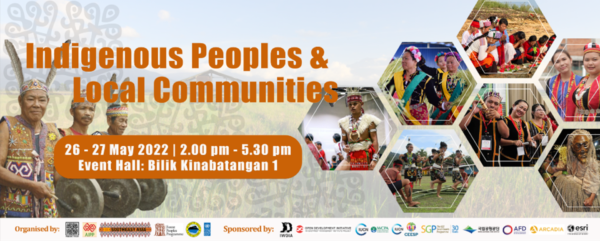
The first session of the forum highlighted Indigenous Peoples’ practices in conservation, with stories from around Asia to promote peer learning among delegates. Delegates from six countries shared their practices in protection, sustainable use, and restoration in their territories of life as well as the challenges they face.
Delegates from Sabah, Sarawak, and peninsular Malaysia, Thailand, Philippines, Nepal, and Northeast India shared examples of Indigenous practices for documenting, sustaining, and defending the territories of life. One highlight from Thailand emphasized their challenges with the Thai royal army and how they develop local ordinances and land use maps to engage with the army.
Participants from Northeast India highlighted their monitoring system. One of the success stories is from the Idu Mishmi people, who have to date recorded around fifty types of animals in their territories.
The Philippines highlighted knowledge transfer from elders to the younger generation and the role of youth in documenting their conservation area and practices. A Temiar representative from peninsular Malaysia shared practices in protecting their territories. The community is addressing multiple challenges from overlaps by protected areas, durian plantations, and dam development.
The second session was designed to explore opportunities to support and recognize the regional and local conservation initiatives led by Indigenous Peoples and local communities such as territories and areas conserved by Indigenous Peoples and local communities (abbreviated as ICCAs or territories of life), other effective area-based conservation measures (OECMs), and a Sabah Parks initiative called Kinabalu ECOLINC.
The highlight of this session was the discussion on ways to support programs and initiatives by Indigenous Peoples and local communities. The ASEAN Centre for Biodiversity and Universiti Teknologi MARA discussed the OECM mechanism and case studies in Malaysia. Also discussed during the session were IUCN’s programs in Asia and how the communities can apply for their support.
Sabah Parks talked about their roles in conservation and protection and engaging with communities surrounding the parks. One good example is the ECOLINC program that supports community livelihoods around Kinabalu Park.
The third session focused on building partnerships and collaborations for conservation among agencies, government, and communities. The highlight of the session was the discussion on building networks and collaboration between communities and other agencies.
WWF, Sabah Social Forestry Association (SASOF), Sabah Biodiversity Centre (SaBC), Forever Sabah, ICCA Consortium, and AIPP shared their visions and stories from their organizations’ experiences in partnerships and networks, challenges, and recommendations in building trust between organizations and communities.
These stories and aspirations of Indigenous Peoples and local communities of Southeast Asia were successfully captured and presented in the Api-Api Declaration.
Congress events
ICCA Consortium Members organized two main side events during the 2nd Asia Parks Congress.
On 26 May, ICCA Consortium Southeast Asia organized an event to soft-launch the Southeast Asia Territories of Life Report. The Southeast Asia Council Chairperson Peter Kallang (SAVE Rivers) presented an overview of the report, followed by a sharing session on case stories from the experiences of Ketut Santi Adnyana (Bali, Indonesia), Samban anak Tugang (Sarawak, Malaysia), and Maica Saar (Palawan, Philippines), youth delegates who are all part of the contributing writers of the publication. Reactions and synthesis were then provided by Members and Honorary members of the ICCA Consortium.
On 27 May, a sharing session on documenting ICCAs entitled “Documentation and Mapping of Indigenous and Community Conserved Areas in Asia” was organized by Neema Pathak Broome, Tanya Majmudar, and Rudrath Avinashi from Kalpavriksh, ICCA Consortium Member and host of the South Asia regional coordination team. The session featured a lively exchange on the experiences of Indigenous Peoples and local communities and their partner organizations with documenting ICCAs and a launch of a new portal on community conserved areas in South Asia. Members of the Working Group on ICCAs Indonesia (WGII, ICCA Consortium Member) also participated as resource speakers during this session, sharing their extensive experience with supporting the documentation and registration of Indigenous territories across Indonesia.
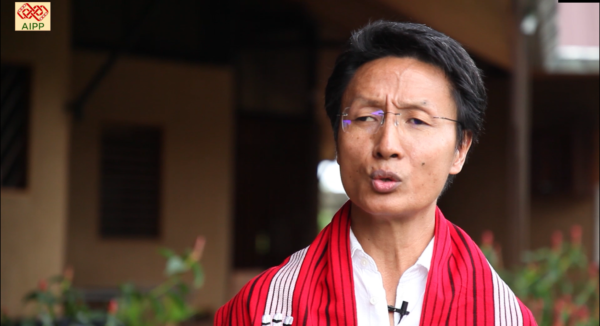
In addition, Gam Shimray (Naga), Secretary General of AIPP, delivered a statement to Congress on 26 May. Among other things, he stated: “The CBD Vision 2050 can be realized only by moving away from the fortress approach to conservation. Standing up for rights and defending land and environment in Asia has endangered grassroots leaders for defending their rights and the integrity of their ecosystems… Harmony with nature ultimately hinges on the recognition of human rights and intergenerational equity over lands, territories, and resources. To achieve the post-2020 conservation agenda, future actions and investments must recognize the conservation leadership of grassroots communities and place the advancement of their land tenure rights, cultural identities and equitable governance as game changing solution as well as a measurement of success.”
The Api-Api Declaration, the main outcome of the Indigenous Peoples’ and local communities’ forum, provided key inputs to the Kinabalu Declaration, the main outcome of the Congress as a whole. The Kinabalu Declaration includes several references to Indigenous Peoples and local communities, including their conserved territories and areas (ICCAs—territories of life), and their rights to provide free, prior and informed consent and have full, effective and meaningful participation in decision-making processes that affect them and their rights and lands, territories and resources.
With the success of these events, ICCA Consortium Members are inspired to increase the engagement and participation of Indigenous Peoples and local communities in future IUCN congresses to amplify perspectives and voices of stewards who document, defend, and sustain territories of life across the world.

